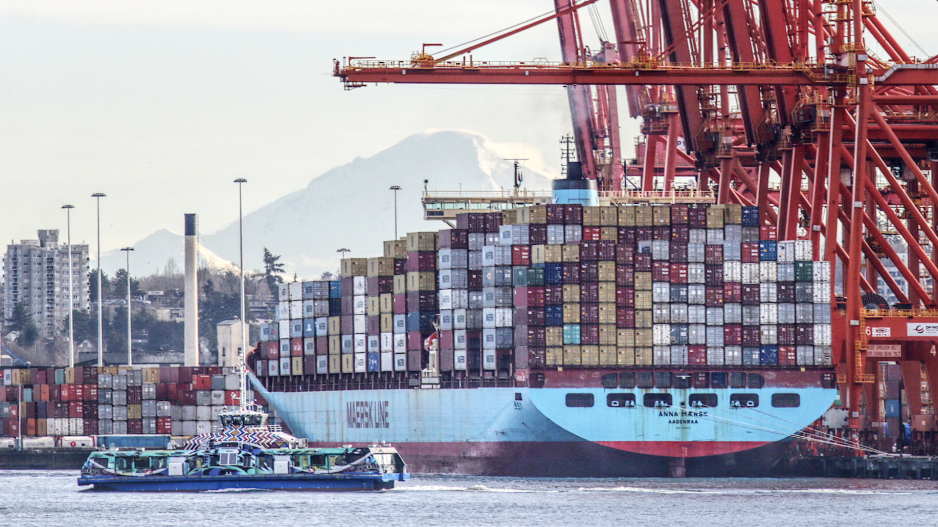As the United States pauses sweeping tariffs on imported Canadian products, B.C. Minister of Jobs, Economic Development and Innovation Diana Gibson says the B.C. government will continue pursuing, at a heightened level, trade diversification efforts.
The following is a Feb.4 interview between BIV and Gibson on this topic, with answers edited for brevity.
BIV: How can the B.C. government help diversify trade within the framework of federal trade policy?
Gibson: “We implemented in 2023 a trade diversification strategy in the post-pandemic period to build resilience and market access for businesses in the recovery period.
“We have export navigator programs to support individual businesses looking to diversify their markets. …There is going to be a rollout of a number of those programs in the coming months. …They deliver six weeks of workshops and mentorships with ministry staff and federal counterparts for developing an export plan with businesses. … And we have seen this increase in export revenues by 23 per cent with the implementation of these programs.
BIV: Over the past decade not much has substantially changed in terms of proportions of export volume by country. What are some of the challenges of diversifying trade?
Gibson: “I think it's pretty clear that previously, you know, we've had a very solid relationship with our trading partner south of the border and it's been easy. So diversifying away from what is the most accessible market without significant barriers was harder to do.
“I think what you'll see now is that the lack of reliability and uncertainty related with trade with the U.S. will mean that there's an appetite to do that, to move to those other markets.”

BIV: What countries is the BC NDP government targeting?
Gibson: “We did just open new trade and investment offices in Mexico, Taiwan and Vietnam. So, we're certainly identifying countries where there are business opportunities or there are specific markets for things like our wood products … in Vietnam.
“So that's a good example of us identifying with tariffs already on softwood lumber, the need to diversify those markets and pivot to other markets.”
BIV: A lot has been made of those overseas trade offices. Are you looking to move them outside of consulates like the old model?
Gibson: The ones that were moved into the consulate, it was for very good reasons. First, because they have better access in the consulate to both the business and the political sides, and it's been a win for us. And then, also, it's more cost effective for the taxpayers.
BIV: Do you view China as a reliable partner, like you used to think of the U.S.?
Gibson: “Our policy around China is the federal government’s. But our goal is to diversify into the markets that are working for our industry partners, and China is one of those markets. But as you see we've been focusing in on other places — Mexico, Taiwan, Vietnam. I met with the European Union representatives recently to talk about what are the opportunities for us to increase our collaboration and with the U.K. as well.
BIV: Is B.C. positioned well to participate in the Comprehensive Progressive Agreement for Trans Pacific Partnership?
Gibson: “Our trade offices are working closely with Japan. We have partnered with Japan Overseas Infrastructure Investment Corporation for Transport and Urban Development.”
BIV: What interprovincial trade barriers are you looking to concede or delete from the B.C. side, and what ones are you looking at from other provinces that you would like a concession or deletion?
Gibson: “I can't speak specifically to the negotiations. We were in the room last Friday and those are those are being brought forward to the first ministers around what our strategy is going to be. But I can tell you that there's a real appetite in that room to accelerate our conversations.
“There’s a pilot right now for reducing the barriers around trucking. And that's just different regulations between different provinces on things like the size of a truck or the weight of a truck.”
BIV: In terms of supporting other province’s desires on trade, would the B.C. government support a Northern Gateway pipeline and likewise lifting of the north coast oil tanker moratorium?
Gibson: “Yeah, I can't speak to that issue.”
BIV: Are there items that would be too difficult to move away from the U.S.?
Gibson: “So it's certainly going to be industry by industry and product by product. Those things are different, you know, and for one industry, they may not be super price-sensitive in the U.S. because there might not be a lot of other competitors that could move into that space easily. So each business and industry will have a different set of risks with the tariff situation. And that's why we are going to be engaging across industry sectors to identify where those vulnerabilities are … and also those opportunities where we can start to fill out our supply chains here in B.C. and here in Canada, focusing on interprovincial trade and building out our opportunities for trade across Canada.”



